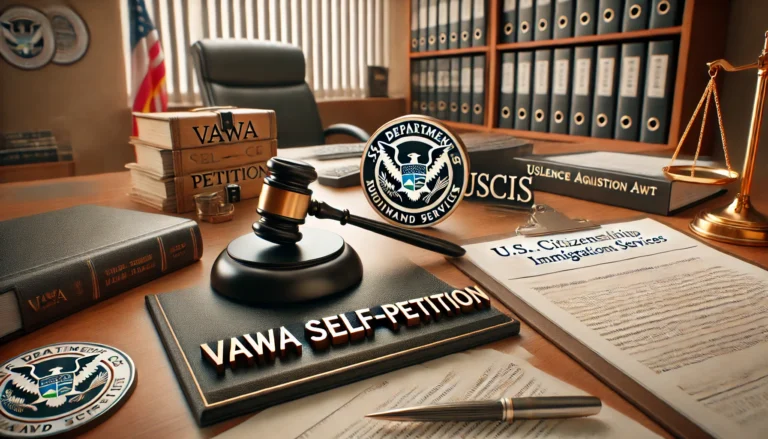The Violence Against Women Act (VAWA) permits particular victims of abuse to petition for legal status in the United States without the help of their abuser. This law helps protect families of U.S. citizens and permanent residents from abuse. According to Odunlami Law Immigration Attorneys, a successful VAWA self-petition requires strong evidence to show that the applicant meets all the legal requirements. The process can feel overwhelming, but having the right documents will improve the chances of approval. Many applicants worry about how much proof they need and what types of evidence work best. Gathering the right documents will make the process smoother and help build a strong case.
Proof of Qualifying Relationship
A VAWA self-petition requires proof that the applicant had a legal relationship with the abuser. A spouse must show a valid marriage certificate. A child must provide a birth certificate or adoption records. A parent must submit evidence proving their relationship to the abusive son or daughter. If the marriage ended due to divorce or death, additional documents are necessary. A divorce decree, death certificate, or annulment papers can help show the relationship was real. If the abuser was a lawful permanent resident or U.S. citizen, official immigration documents should be included as well.
Evidence of Abuse
USCIS requires proof that the applicant experienced physical or emotional abuse. Police reports, restraining orders, or medical records can serve as strong evidence. If the abuse was not reported to authorities, personal affidavits describing the mistreatment can help. Statements from friends, family members, or therapists can also support the case. Photos of injuries, damaged property, or threatening messages can provide further proof. Many victims are afraid to report abuse, but a well-documented statement with supporting evidence can still be convincing. Emotional abuse can be challenging to prove, but letters from counselors or witnesses can help show what someone has been through.
Proof of Good Moral Character
Applicants must show that they are a person of good moral character. This is usually done by providing police clearance letters or background checks. A clean record helps strengthen the petition, but minor offenses do not necessarily lead to a denial. If an applicant has a past criminal record, they may need to provide an explanation and proof of rehabilitation. Letters from employers, religious leaders, or community members can also support a claim of good moral character. Volunteer work and other positive contributions to society may help show that the applicant is a responsible and trustworthy person. If an applicant has had any legal issues, submitting evidence of efforts to improve can be beneficial.
Proof of Residence with the Abuser
A VAWA self-petition requires proof that the applicant lived with the abuser at some point. Utility bills, lease agreements, or mail addressed to both parties at the same address can serve as evidence. If these documents are not available, affidavits from neighbors, landlords, or friends can help confirm the shared residence. Photographs of the home, shared belongings, or family events can also be useful. If the victim had to leave the home due to safety concerns, evidence of shelter stays or alternative housing arrangements may help explain the situation. Any official records that show the victim and abuser resided together will strengthen the case.
Proof of Good Faith Marriage (If Applicable)
If the applicant was married to the abuser, they must prove the marriage was real and not just for immigration purposes. Wedding photos, joint bank statements, and shared insurance policies can show a genuine relationship. Affidavits from friends and family who attended the wedding or knew the couple well can help. Evidence of shared children, vacations, or joint financial responsibilities can also establish the authenticity of the marriage. If the couple filed joint tax returns, these documents can support the claim. Any letters, emails, or texts that show the couple had a loving relationship before the abuse began may also be useful.
A VAWA self-petition requires strong evidence to prove abuse, a qualifying relationship, good moral character, and shared residence with the abuser. Having the proper documents can improve your chances of approval. Victims who do not have official records should consider gathering affidavits from trusted sources. Each piece of evidence adds to the complete picture. The process can feel overwhelming, but being prepared increases the chances of approval. VAWA provides a path to safety and independence for those who have suffered abuse. Seeking legal guidance can help applicants understand their rights and submit a strong petition.

